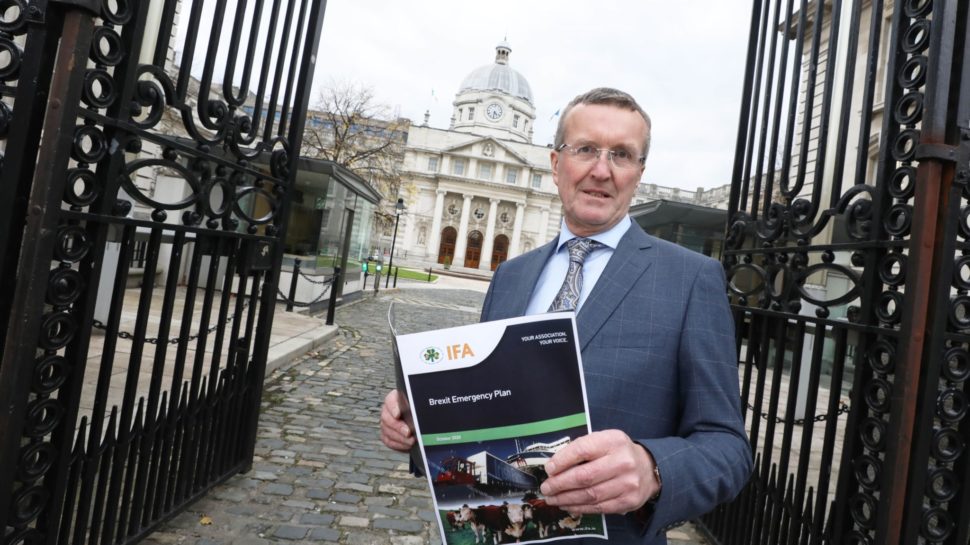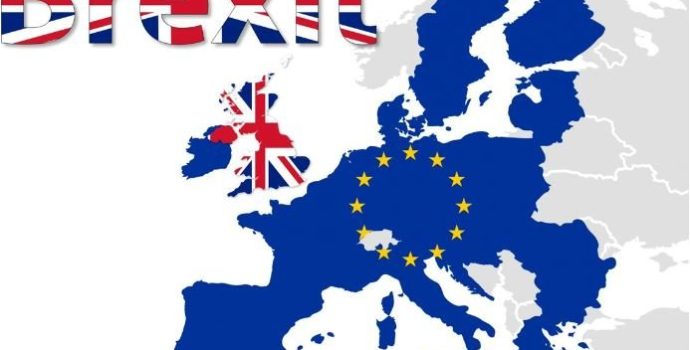Summary of EU-UK Trade & Cooperation Agreement

This summary is based on the EU’s descriptions of the Trade & Cooperation Agreement (TCA), except where stated otherwise. The TCA consists of three main pillars:
1. Free Trade Agreement
Trade in goods with zero tariffs and zero quotas – under agreed rules of origin.
- Safeguards the EU’s high food safety and SPS standards regarding imports. Either party can unilaterally reduce the frequency of SPS import controls taking account of the extent to which their rules converge.
- Mutual recognition of trusted traders’ programmes (Authorised Economic Operators) to reduce customs formalities
- Organic products to benefit from an equivalence agreement, i.e. reciprocal recognition of EU and UK legislation and controls
Level playing field commitments – including:
- Non-regression on standards re labour and social standards, the environment and climate including carbon pricing
- Climate change is included as an essential element: any violation by one party of the 2015 Paris Agreement gives the other party the right to terminate or suspend all or parts of the TCA.
- Agri-food: The only specific commitment relates to the use of antibiotics and decontaminants (anti-microbial resistance).
- State aid rules to prevent distortions caused by subsidies and anti-competitive practices
- Domestic enforcement, a binding dispute settlement mechanism and the possibility for both parties to take remedial measures
- In regard to future regulatory divergence, unilateral rebalancing measures may be applied where significant divergences in labour, social, environment or climate protection, or subsidy control, materially impact trade between the parties.
Fisheries
- 5.5 year transition period when EU vessels will have continued access to UK waters, but with a phased 25% reduction in quotas
- From then on, annual consultations on EU access.
Other provisions on services, investment, air and road transport, energy, data protection and social security coordination.
2. Framework for law enforcement and judicial cooperation
3. Horizontal Agreement on Governance
Partnership Council to manage the agreement
- Co-chaired by an EU Commissioner and UK Minister
- Assisted by Specialised Committees including on trade and SPS
- A joint EP and UK parliamentary assembly to exchange views and make recommendations.
Binding enforcement and dispute settlement mechanisms
- Including independent arbitration tribunals to where one party is using its regulatory autonomy to grant unfair subsidies or distort competition.
- Cross-sector retaliation, e.g. by imposing tariffs on goods where the other party persists in violating the agreement.
Big Changes from January 1st, 2020
On 1 January 2021, the UK will leave the Single Market and Customs Union, as well as all EU policies and international agreements.
- Free movement of persons, goods, services and capital between UK and EU will end.
- The EU and the UK will form two separate markets; two distinct regulatory and legal spaces, creating barriers to trade that do not exist today – in both directions.
- Trading will be very different compared to the frictionless trade within the CU and SM:
- All imports will be subject to customs formalities and other rules
- All imports into the EU must meet all EU standards and will be subject to regulatory checks
- Rules of origin will apply to prove goods qualify for preferential trade terms.
EU-UK Withdrawal Agreement
The Withdrawal Agreement remains in place covering:
- The rights of EU citizens and UK nationals
- The financial settlement and
- Ireland – the Protocol will be implemented on 1 January 2021. It is subject to a consent mechanism after four years which requires a simple majority of MLAs in the Northern Ireland assembly.
Trade between GB and NI under the Protocol
All goods entering NI from GB will be subject to the Union Customs Code, legislation on goods, SPS rules on agri-food and rules on agricultural production/marketing.
- Temporary flexibilities will allow the supply of certain chilled meats (normally prohibited) and other food products to supermarkets for 6 months.
- For 3 months, goods coming from GB to supermarkets in NI may be covered by a simplified, collective certificate for all the goods in a truck, instead of individual certificates. The UK will maintain its current EU SPS legislation for those products.
The UK has agreed to withdraw the contentious clauses of the UK Internal Market Bill, and will not introduce any similar provisions in the Taxation Bill.
Right to Apply Trade Defence Instruments
The EU notes that both parties can apply trade defence instruments according to WTO rules, including a special agriculture safeguard mechanism to protect farmers against surges in imports or price declines below a certain level.
Provisional application of TCA until 28 February 2021
- The EU Council will apply the TCA on a provisional basis from 1 January to 28 February 2021.
- This will allow time for the European Parliament to give its consent.
- UK approval is to be now complete.
UK Government Summary Explainer
- TCA honours the instruction of the British people
- To take back control of our laws, borders, money, trade and fisheries
- Restores national sovereignty
- Opportunity to show what Global Britain can do, reasserting ourselves as a liberal free trading nation
- First time the EU has agreed a zero tariff and zero quota trade deal
- Very limited scope for cross-suspension following disputes
- SPS
- Both sides can maintain fully independent SPS rules
- Regular joint reviews of respective SPS border controls to see if each party can further facilitate trade
- Customs & Trade Facilitation
- Mutual recognition of ‘trusted trader’ (AEO) schemes
- Co-operation at ‘roll-on roll-off’ ports like Dover and Holyhead
- Level Playing Field
- Both sides have the right to set their own laws, subject to the broad constraints of the TCA … and
- Subject to arbitration, to take countermeasures if they believe they are being damaged by measures taken by the other party in subsidy policy, labour and social policy, or climate and environment policy.
- Review
- Every five years
- Either side may terminate the agreement with 12 months’ notice.
Additional Points
- Imports of GB seed potatoes to the EU including NI will be banned.




